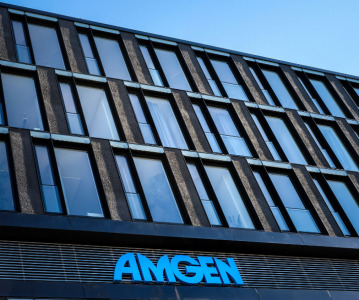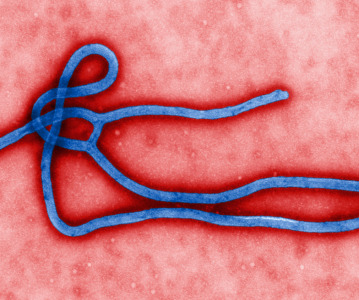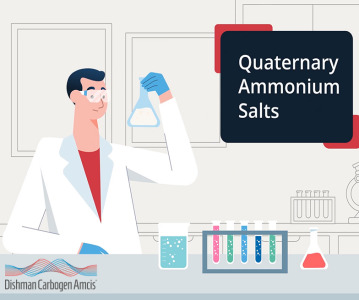Boehringer Ingelheim boosts immune-oncology pipeline through collaboration with ViraTherapeutics

New long-term collaboration to develop next generation oncolytic virus platform and lead candidate VSV-GP.
Boehringer Ingelheim and ViraTherapeutics have announced a long-term collaboration to jointly develop a next generation oncolytic virus therapy platform and to investigate ViraTherapeutics' lead candidate VSV-GP (Vesicular Stomatitis Virus [VSV] glycoprotein [GP]) alone and in combination with other therapies. ViraTherapeutics, a biopharmaceutical company specializing in the development of oncolytic virus therapies, has developed its novel technology with joint support from its lead investors EMBL Ventures and Boehringer Ingelheim Venture Fund (BIVF) and will now be responsible for preclinical and clinical testing of VSV-GP in Phase I trials. Under the terms of the collaboration, Boehringer Ingelheim receives the right to acquire ViraTherapeutics after conclusion of Phase I clinical development.
"We are very excited about this new collaboration with ViraTherapeutics, a company for which the Boehringer Ingelheim Venture Fund is a core investor," said Dr Michel Pairet, member of Boehringer Ingelheim's Board of Managing Directors responsible for Innovation. "Oncolytic viruses are among the most promising new therapy approaches in cancer research and the technology developed by ViraTherapeutics may offer significant advantages compared to others currently under development. The new collaboration is an example of Boehringer Ingelheim's increasing focus on partnering and further complements the company's growing immune-oncology pipeline that includes among others, a therapeutic cancer vaccine and next generation checkpoint inhibitors."
Oncolytic virus therapy is a cancer treatment approach that uses a virus that infects and breaks down cancer cells. Tumour antigens that are normally hidden from the immune system inside the cells are released, triggering an immune response to fight the tumour. VSV-GP has a shorter replication time than other oncolytic virus platforms currently under development. This oncolytic virus does not integrate in the DNA and has been modified to avoid neural inflammation associated with wild type viruses. In VSV-GP the glycoprotein of the Vesicular Stomatitis Virus has been replaced by the glycoprotein of the Lymphocytic Choriomeningitis Virus (LCMV) to conceal the virus from the immune system. In preclinical models it did not induce virus neutralizing antibodies, potentially enabling repeated administration.
"This is an important milestone for the development of ViraTherapeutics. The team has worked hard on our technology platform and lead candidate. In addition to its oncolytic activity, VSV-GP has demonstrated the ability to prime and boost an anti-cancer immune response and does not appear to prompt effective antiviral immune responses. These properties are expected to allow ground-breaking applications of this novel treatment approach. In the collaboration with Boehringer Ingelheim we can now fully explore the platform and therapeutic potential of our VSV-GP oncolytic virus," said Prof. Dr Dorothee von Laer, scientific founder and CEO of ViraTherapeutics. "We will also continue to investigate VSV-GP's potential to be armed with therapeutic genes, as well as antigens for its use as a prophylactic or therapeutic vaccine vector."
Related News
-
News Eli Lilly gets ready to launch five new drugs in 2023
Eli Lilly, the American pharmaceutical company (IN, USA) are gearing up for a big year ahead, with hopes to launch five new drugs and capitalise on growing obesity and Alzheimer’s disease markets. -
News Amgen buys Horizon for $27.8 billion in bold step into the rare disease market
Amgen Inc buys pharmaceutical company Horizon Therapeutics in a multibillion-dollar deal, in hopes to capitalise on it's portfolio of drugs in the highly sort after rare disease market. -
News Pharma Supply Chain People Moves
The latest appointments and promotions across the pharmaceutical supply chain. -
News Merck to donate new Ebola vaccine to defend against outbreaks in Uganda
Pharmaceutical giant Merck has announced they will be speeding up the processing of a new vaccine against the latest strain of the Ebola virus, to be donated to a global non-profit organisation for distribution -
News CPHI Podcast Series: Driving innovation with pharmaceutical startups
The latest episode in the CPHI Podcast Series explores how startups are driving innovation by taking high-risk approaches and doing business with greater agility. -
News Greener and efficient processes: Quaternary Ammonium Salts
Quaternary Ammonium Salts play a crucial part in Organic Chemistry processes at many major industries. Discover why.
-
News Biosimilars save patients $11B annually, but barriers to adoption remain in US market
Biosimilars introduce competition into the biologics market, driving down prices and increasing patient access. -
News WHO recommends use of two monoclonal antibody treatments against Ebola
The health body recommended use of treatments by Regeneron and Ridgeback Bio
Position your company at the heart of the global Pharma industry with a CPHI Online membership
-
Your products and solutions visible to thousands of visitors within the largest Pharma marketplace
-
Generate high-quality, engaged leads for your business, all year round
-
Promote your business as the industry’s thought-leader by hosting your reports, brochures and videos within your profile
-
Your company’s profile boosted at all participating CPHI events
-
An easy-to-use platform with a detailed dashboard showing your leads and performance




.png)


